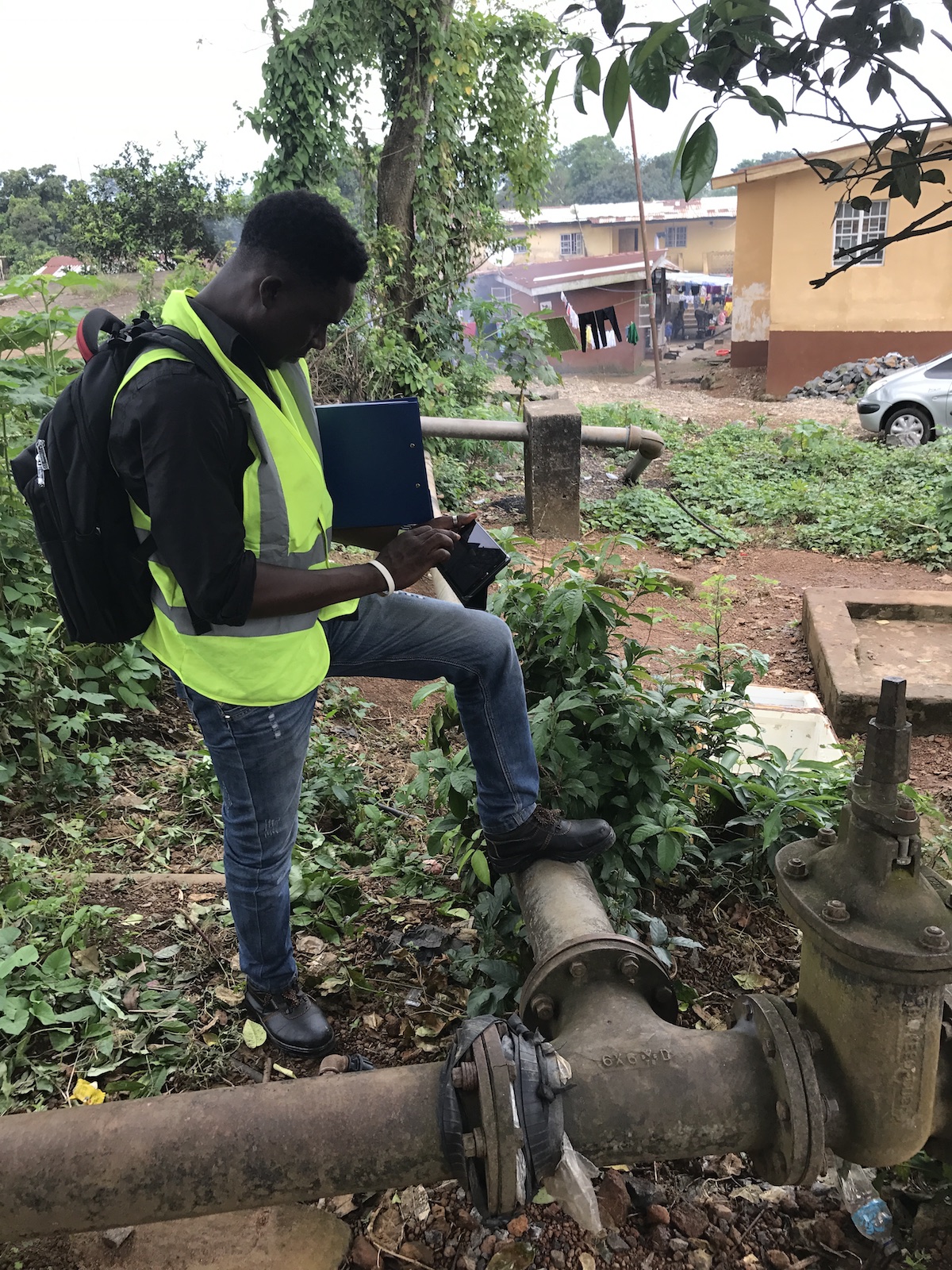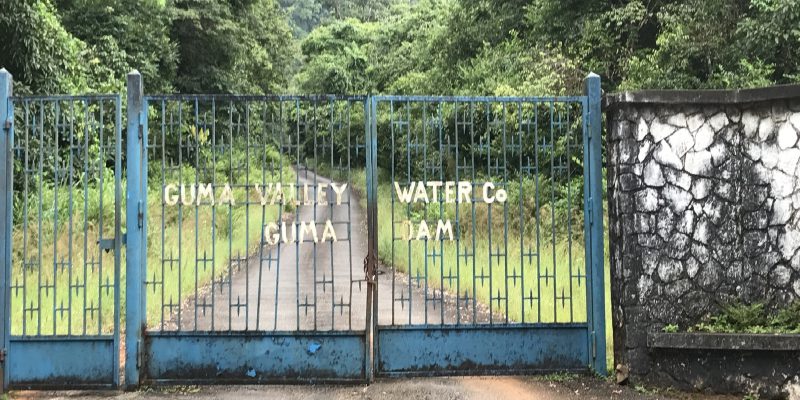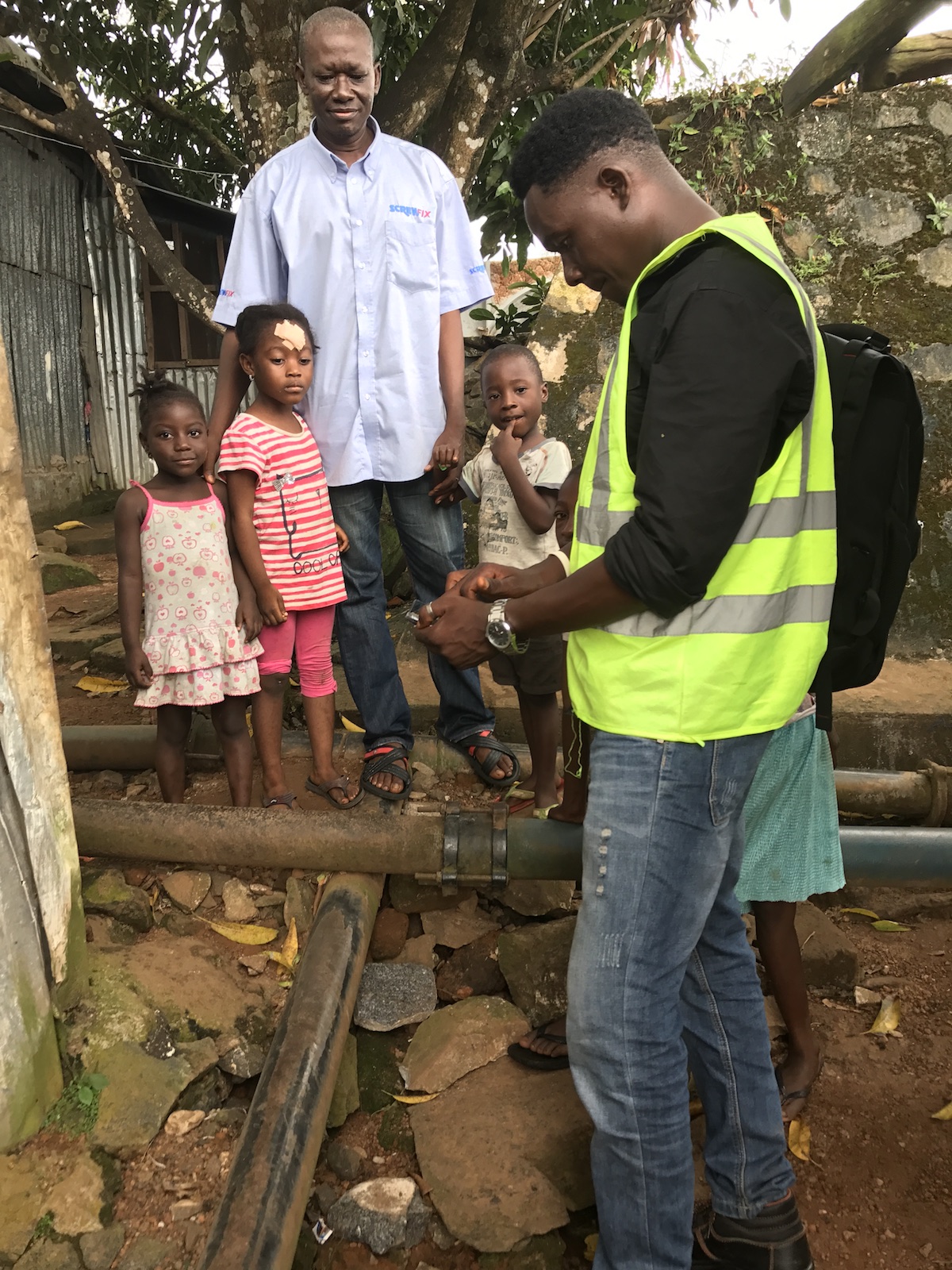In Freetown, Sierra Leone, technician Dennis Koroma navigates the bustling streets filled with busy vendors and honking cars to map the city’s water pipes. He can walk along many of the pipes, as they are exposed and easy to see. The buried pipes are harder to locate, but he relies on his global positioning system-enabled tablet containing maps from 1979 — the last time the city’s water system was officially mapped — and local knowledge to guide him.

Credit: MCC
Technician Dennis Koroma maps water pipes, many of them exposed, in Freetown, Sierra Leone. As part of MCC’s Sierra Leone Threshold Program, technicians like Dennis are helping to provide a more accurate understanding of the city’s water distribution system, which will enable the Government of Sierra Leone to more efficiently address service delivery problems.
“In Sierra Leone, people are so strained for water. Pipes are very important because they sustain our water,” Dennis told me.
As part of the $44.4 million Sierra Leone Threshold Program, MCC is supporting the Government of Sierra Leone’s efforts to more effectively deliver water and electricity services to its people and limit opportunities for corruption as the country continues its recovery from the Ebola epidemic. A key component of the water project is the mapping that Dennis and other technicians are performing to confirm the position of water mains and identify the extent of the piped supply areas, including informal connections. With this information, GVWC will create a digital map of the city’s water distribution system and have better information to assess the water system’s performance and more efficiently address service delivery problems.
Water and sanitation-borne diseases are a major concern for Freetown’s residents. In areas with poor sanitation, viruses easily spread from feces into the water supply, or, by touch, into food. Insufficient water pressure leads to poor water quality, which can make people sick. E. coli and other pathogens can enter the water supply system through breaks in the pipes, contributing to the spread of cholera and other illnesses. This is especially dangerous for children, elderly and other vulnerable groups. According to the United Nations Children’s Fund, Sierra Leone has the world’s fourth-highest mortality rate for children under 5. The Government of Sierra Leone is working to change this, and on our journey, we came across health workers providing free polio vaccinations to children as part of a nationwide immunization campaign.
In Freetown, GVWC supplies water to around 60 percent of the population, with many people, including GVWC customers, relying on other suppliers for their needs. One key player is the packaged water industry which produces sachet and bottled water, but some of these suppliers are not licensed.

Credit: MCC
The Guma Valley Water Company is the main water supplier for the people of Freetown, Sierra Leone. The utility has been struggling to meet demands of the capital’s growing population, and water shortages are frequent. MCC’s Sierra Leone Threshold Program is working with the utility to improve the tariff setting processes, better manage its assets and engage the private sector to ensure sustainability.

Credit: MCC
A family looks on as technician Dennis Koroma maps water pipes in Freetown, Sierra Leone. Water and sanitation-borne diseases are a pressing problem in the capital and are exacerbated by poor infrastructure, including broken pipes. MCC’s investments are supporting Government of Sierra Leone in its efforts to strengthen Freetown’s water utility.
The Sierra Leone Threshold Program is providing technical assistance to the Government of Sierra Leone as it works to establish an independent regulator, improve tariff setting processes and transparency, and build capacity for managing the water system to help ensure sustainability of the system. A public-private partnership pilot for the operation and management of public water standpipes will also provide the Government of Sierra Leone with new financing models to sustain threshold program improvements.
As we made our way through the last of the narrow passages between homes on Dennis’s route, I thought about the many people like Dennis who are contributing their skills, knowledge and drive to improve water quality and access for the people of Freetown. As Dennis told me, “This work makes me feel good and gives me new ideas about our country’s water system.”

